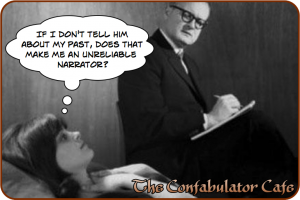 Stories are built, but characters are grown. That’s the best way I can explain it. A story, to me, is a series of events which can be shuffled around to achieve the greatest impact and the most effective rise and fall of tension.
Stories are built, but characters are grown. That’s the best way I can explain it. A story, to me, is a series of events which can be shuffled around to achieve the greatest impact and the most effective rise and fall of tension.
Characters, especially the main characters, must be nurtured and coaxed into revealing themselves a little at a time. If you met someone at a party, and the first thing they did was tell you their entire life story, their likes and dislikes, and their motivation for being at the party, you’d make a beeline for the exit. Thanks for the martini and the canapés, love what you’ve done with the place, see you at work on Monday.
Main characters start as a picture in my head, a piece of dialogue, or part of a scene already in progress. From there, I start asking questions. Who is this person stripping naked in a bar and hurling her clothes at a round little man in glasses? Why are there flames in her eyes, and why was she dressed like a pirate before she threw her eye patch at him?
I’m not much for filling out character sheets. Yes, I have an obsession for writing out scenes and events on note cards. Yes, I outline before I start writing. But characters have to grow organically.
Sometimes I know far more about my characters than I will ever have the need to share. Other times, I’m flying by the seat of my pants and don’t realize until many chapters later that I have an entire cast of unrelated, hostile characters who are extremely short in stature.
Every last one of them.
But physical characteristics are easy. They’re scene dressing. If they don’t work, I can change them out. Short and fat becomes tall and lean with a few keystrokes. But the hostility of the character, that’s a permanent fixture. The why of the hostility, however, is what may stop me in my tracks to go for a long drive. I will mutter and wave my arms behind the wheel, questioning the motives and back story, until wham. Oh my God. That’s what happened? No wonder he’s so pissed off at her.
In the end, the reader only needs to know what’s important. And most of that should come from observing how the character acts, speaks, and interacts with other characters.
Build the scene with a box of Lego. Grow a character like a hothouse orchid. Nobody wants a description of the flower or how the orchid was grown. People want to hold it in their hands. Smell it.
They want to see it for themselves and form their own opinions.
